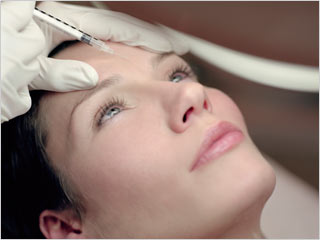Refuting Negative Online Reviews
/ Protecting your medical spa, personal, and professional reputation online can be damn near impossible.
Protecting your medical spa, personal, and professional reputation online can be damn near impossible.
With internet marketing opportunities on the rise, today's aesthetic clinicians are faced with a "double edge sword". One side, if you don't advertise yourself on the internet you have less of a chance to gain presence and new business over your competitors. The other side of the blade is that you are opening yourself and your practice up to negative comments and reviews.
While patients do have a right to exercise The First Amendment, what we really find in our industry is that positive reviews don't come freely. Seldom does a "customer" of a business post how wonderful a place is or what a great experience they had. Typically, rave reviews are solicited by the business encouraging their customers to post reviews if they are "happy". Whereas, someone who is disgruntled in some sort of way has no apprehension whatsoever in posting their views on the internet.
With many sites not requiring the identity of the poster to be verified, this opens up the "Wild West", so-to-speak, for anyone to post anything he or she desires. This also includes your competitors who can acquire an email address with any vendor, then post anonymous false reviews of you and your practice.
How can you combat this? First, you have to be diligent in canvassing your reputation on the web. You have a choice to let the comments go, or research them to see if you can determine who they are so you can have the opportunity to correct the review (if it is a legitimate complaint). You can also report the review to the posting internet site with a clear description of why you believe the post should be removed. However, there is no guarantee you will even receive a response.
Many social media marketing gurus state that all positive reviews on a business tends to make the consumer think something is a little fishy with the business, so one bad review can add to the business's authenticity. Take book reviews on Amazon for example. I know I read through them all, good and bad, then make my decision. After reading a few, you get a general idea of what reviews are just "out there" (i.e., insults, poor language, obscenities, etc.) and which ones are more reliable and genuine.
David Goldberg, M.D., J.D. has written an excellent article for Dermatology Times entitled "Physicians have limited recourse against online defamation". This is a must read article for any clinician!
From the post:
There are known instances of dentists being accused online by their competitors of being child molesters. Similarly, laudatory online comments can be written by the physician himself.
One way to try to work around such frivolous online statements is to have patients sign a waiver that has them promise, in case they are not happy with their care, that they will not post online comments to that effect. The way such contracts are enforceable is as follows.
In general, websites acting as platforms for outside commentary are not liable for defamation suits. They are, according to North Carolina neurosurgeon/attorney Jeffrey Segal, M.D., J.D., subject to copyright laws. Waivers can be written to assign copyright to the treating physician. If the treating physician asks the patient to sign such a "copyright" waiver, the physician can claim ownership of any anonymous review of the practice and demand that such an online review then be removed. There are now examples of website posts removing such deleterious copyrighted comments.
Needless to say, not all patients will agree to sign such a waiver. Some may feel such waivers are simply "gag orders." The reality is that disgruntled patients are free to speak with family, friends, other physicians, lawyers, hospital peer review committees or credentialing committees. There are many appropriate places where patients can express their views.
This guest post is written by Paula D. Young RN, author of Advanced IPL & Laser Training For Non-Physicians and co-owner of Young Medical Spa in Center Valley PA.
Submit a guest post and be heard.












